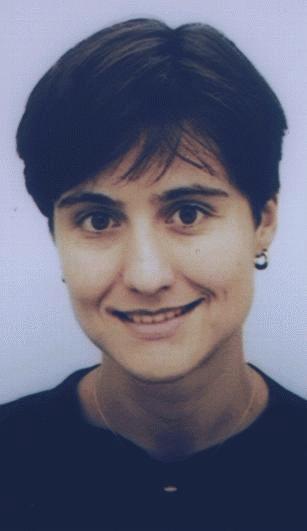

![]() Aquí
mi página en castellano.
Aquí
mi página en castellano.
Mar Marcos
Projet ORION INRIA Sophia Antipolis 2004 route des Lucioles - B.P. 93 06902 Sophia Antipolis Cedex France Room : B009 Tel. : +33 4 92 38 76 74 (+33 4 92 38 76 57 secr.) Fax : +33 4 92 38 79 39 E-mail: Mar.Marcos@sophia.inria.fr
And also in:
Departament de Informàtica Universitat Jaume I Campus de Riu Sec 12071 Castelló Spain Room : TI-2106-DD Tel. : +34 964 72 82 88 (+34 964 72 83 44 secr.) Fax : +34 964 72 ?? ?? E-mail: marcos@inf.uji.es
To send me a message, click here.
Verification and Validation of Knowledge-Based Program Supervision Systems
Program supervision (PS) consists in the automation of the use of an existing program library, independently of any individual application. PS systems are in general intended to work without (or with little) human interaction, and in a varying environment. Therefore, the development of PS systems requires a reliable methodology, comprising verification and validation (V&V) techniques. Verification of knowledge-based systems has been usually limited to syntactic verifications based on the implementation language, mostly rule bases. PS is a well-defined task. It includes features from the generic tasks of planning and parametric design.
We distinguish the following elements in the specification of a knowledge-based system: task definition, problem-solving method, and domain model. Our verification approach is based on the PS ontology and on the requirements that both the task and problem-solving method enforce on the domain knowledge of a particular application.
A knowledge model of PS allows us to identify the properties that the knowledge base has to verify with respect to the intended use of the embodied knowledge in the task, with more significant semantics than the properties based on the syntax of the implementation language. The implementation of the verification tool for the knowledge base will be based on the properties identified in this way. The verification of the problem-solving method, on the other hand, can help to the detection of the requirements on the knowledge base necessary to relate the problem-solving method to the task. For this purpose, the KIV tool has been recently used in some examples. The main characteristic of our model-based approach resides in exploiting the knowledge on the task, and in the meaningfulness of the verified properties.
(Click on titles to obtain on-line abstracts, PostScript and BibTeX
references)
This paper presents a brief state of the art on the verification
and validation of knowledge-based systems, and then it focuses on program
supervivion systems and their particular verification and validation needs.
This paper is concerned with the verification of knowledge-based
systems for the program supervivion task. To study the properties that
the knowledge base must fulfil, a model-based approach is used in which
the intended use of the knowledge in the program supervivion task is exploited.
This paper presents a knowledge-level analysis of the task program
supervivion based on two different systems: PEGASE and PULSAR. Although
the initial motivation of this knowledge-level analysis was studying the
verification issues for program supervivion knowledge bases, other interesting
results were obtained.
This paper presents a case study of reasoning engines built by means of the LAMA development platform. A first version of LAMA platform is devoted to the development of program supervivion systems. The main constituent of LAMA is a library of program supervivion-oriented components for engine design that facilitates engine (re)configuration.
Mar Marcos studied computer science at Universitat Politècnica de Valencia (Spain). In 1992 she started to work as research-teaching assistant at Universitat Jaume I in Castellón (Spain), within the Computer Science Department. There she followed the PhD programme, specialising herself in Artificial Intelligence. Currently she is carrying out her PhD in the framework of a cooperation between the INRIA Sophia Antipolis and the Universitat Jaume I. Her supervisors are Angel P. del Pobil (Computer Science Department, Universitat Jaume I) and Sabine Moisan (ORION team, INRIA). The subject is Verification and Validation of Knowledge-Based Program Supervision Systems.